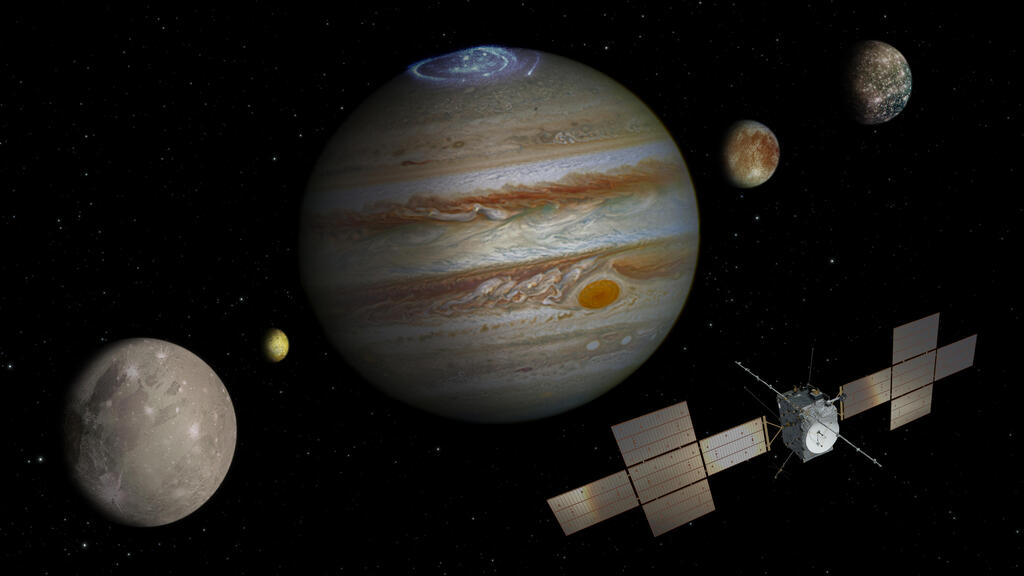Getting your Trinity Audio player ready...
Liftoff of JUICE spacecraft
(Video: European Space Agency)
A critical antenna is jammed on a Jupiter-bound spacecraft launched two weeks ago, the European Space Agency reported Friday.
Other Stories:
The 52-foot (16-meter) radar antenna on Juice unfolded only one-third of the way following liftoff, according to the space agency.
Engineers suspect a tiny pin may be protruding. Flight controllers in Germany plan to fire the spacecraft’s engine in hopes of shaking the pin loose. If that doesn’t work, they said they have plenty of time to solve the problem.
Juice, short for Jupiter Icy Moons Explorer, won’t reach the giant planet until 2031. It’s taking a roundabout path to get there, including gravity-assist flybys of Earth and our moon, and Venus.
The radar antenna is needed to peer beneath the icy crust of three Jupiter moons suspected of harboring underground oceans and possibly life, a major goal of the nearly $1.8 billion mission. Its targets include Callisto, Europa and Ganymede, the largest moon in the solar system.
The space agency said everything else is going well with the spacecraft, about the size of a small bus. A radio antenna, solar panels and a 35-foot (10.6-meter) boom for measuring Jupiter’s magnetic field have all been successfully deployed.
On board the JUICE spacecraft is a complete Israeli electronics system. The mission new technologies and scientific research were funded by the Israel Space Agency and the Innovation, Science, and Technology Ministry, in cooperation with Jerusalem-based company AccuBeat.





